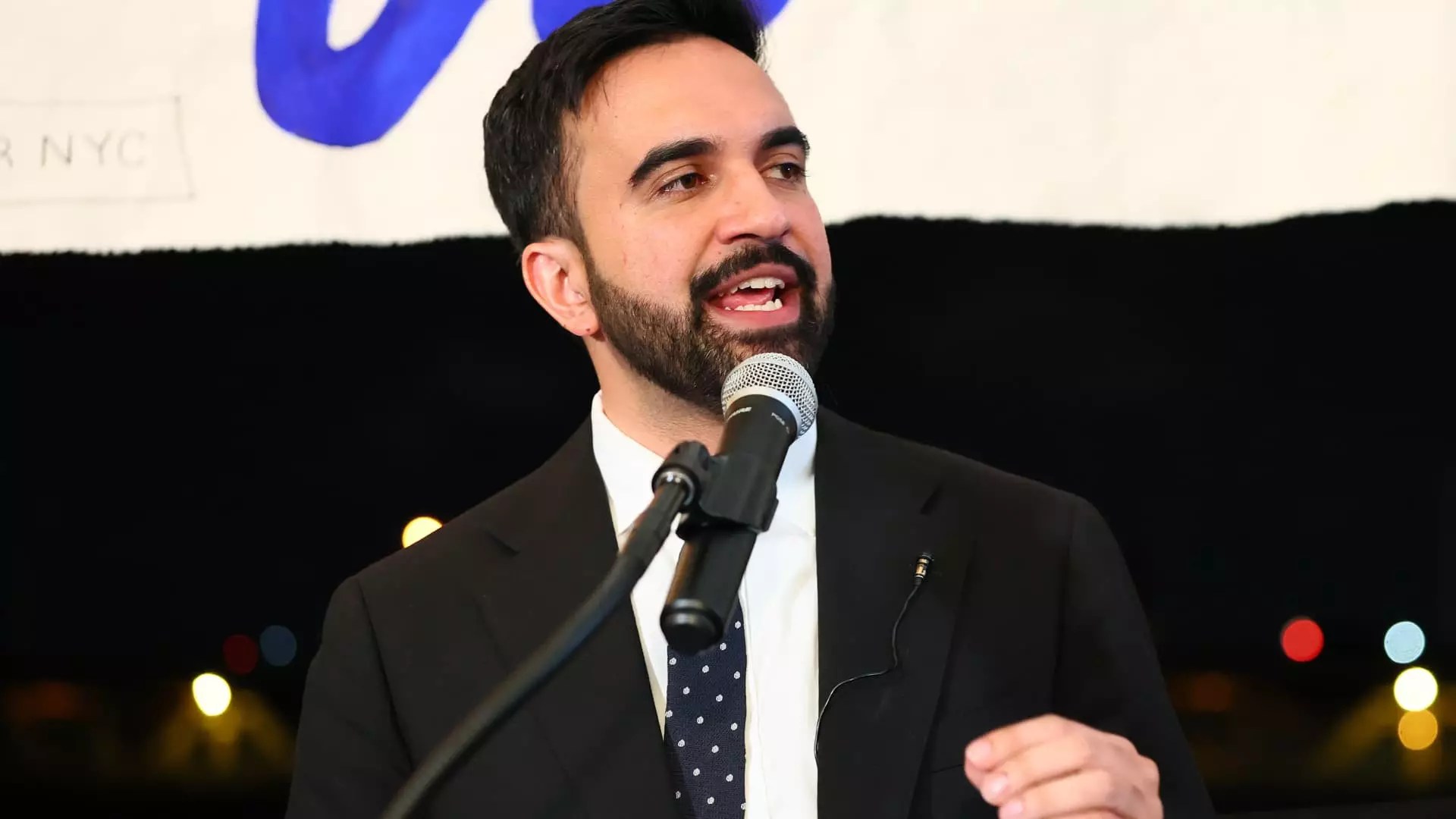The financial dynamics of New York City are under scrutiny as the real estate sector responds to the disturbing political developments following the Democratic primary won by Zohran Mamdani. Shares of Flagstar, a key player in the regional banking space, took a nosedive of 6% after Mamdani’s apparent win, igniting conversations about the fragility of the real estate market in the face of aggressive proposed reforms. Analyzing these events reveals not only the direct implications for Flagstar but also broader concerns about economic stability and the seemingly ever-encroaching risks imposed by local governance.
The Real Estate Tropes: A Market on Edge
Flagstar, formerly New York Community Bancorp, finds itself in a precarious position, with substantial exposure to the multifamily real estate market. This is not simply a play on numbers; it’s a representation of the fragility of a sector that hinges on consistent rental income and prudent fiscal management. When high-stakes proposals like rent freezes surface in political campaigns, the immediate fallout shakes investor confidence.
Analysts from Deutsche Bank and Morgan Stanley provide different estimates regarding the bank’s multifamily loan portfolio exposed to New York’s rent regulations, with figures somewhat staggering at up to $18 billion. This exposure is concerning, considering the ominous rhetoric surrounding Mamdani’s campaign promises, particularly his commitment to freeze rent increases in stabilized units. The implications of such a freeze are alarming, not only for Flagstar but for the overall market that supports landlord profitability, job stability, and, ultimately, the city’s economic vitality.
Mamdani’s Rise: An Ideological Shift or Just a Political Gamble?
Mamdani’s ascent within the New York City political sphere reflects a profound ideological shift that bears examination. While he focuses on the noble image of tenant advocacy, the broader implications of his policies suggest a penchant for rent control that could smother investment in the very infrastructure that sustains the city’s housing market. The goal of a more affordable New York should not have to come at the expense of its viability as a thriving economic engine.
His proposals, such as freezing rents and raising corporate tax rates, bear impacts that stretch beyond just the immediate benefit to tenants. While calls for corporate responsibility are increasingly popular, the solution often overlooks the intricate ecosystem of job creation, investment, and housing availability that corporations like Flagstar facilitate. If Mamdani aims to make New York more livable and economically robust, he should consider the delicate balance between helping tenants and sustaining the city’s financial landscape.
Market Reactions: A Prelude to Economic Uncertainty?
The recent trends in market reactions—like the sharp drop in shares for Flagstar—hint at deeper economic concerns. Investors are left assessing the delicate equilibrium between tenant affordability and landlord viability. Isn’t it ironic that a political victory touted as favorable for working-class tenants could alienate the very institutions responsible for maintaining housing security? The notion of a rent freeze fundamentally challenges the expectations of landlords, making them less inclined to invest in properties, which could lead to a calamitous downturn for both tenants and potential investors alike.
The negative sentiment reflected in stock movements could serve as a cautionary tale for policymakers who naively believe that income redistribution through regulatory measures will create a more just society. Indeed, as outlined by Barclays analyst Jared Shaw, the existing rent regulations are already falling short of keeping pace with inflation and cost increases, a nudge towards precarious financial realities that puts future policy shifts into perspective.
Looking Ahead: The Stakes Involved
As American cities like New York grapple with a myriad of challenges—affordable housing, rising rents, and stabilizing economic conditions—the election of figures like Mamdani showcases a response rooted not in pragmatic governance but rather in ideological fervor. The implications of his policies could ripple through the sector, raising questions about risk management in real estate investments and their long-term viability.
The upcoming general election pits Mamdani against Republican Curtis Sliwa and a number of independent candidates, including Mayor Eric Adams. The differing ideologies present a conflicted battlefield, where the stakes are not merely political victories but the very quality of life that constituents experience in New York City. Whether the electorate will see political promises or practical solutions remains an open question, leaving room for speculation about the forthcoming economic environment in this significant metropolis.

